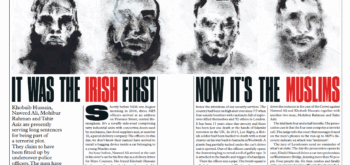A coalition of academics and experts have denounced as ‘baseless’ a controversial report linking drill music with violent crime and the ‘legitimisation of gang culture’ in London. Some 49 criminologists from academic institutions and non-governmental organisations across the UK have signed an open letter describing the findings of the Policy Exchange report as ‘factually inaccurate, misleading and politically dangerous’.
The report (Knife Crime in the Capital) claims to ‘try and help break the dangerous logjam in the debate on policing, stop and search, and knife crime’. Drawing on ‘open-source data’ related to gang-related homicides in London, the report noted that ‘at least 80%’ of victims and perpetrators were of black and minority ethnic origin and argued that ‘at least 37% of cases were directly linked to drill music in 2018 and 23% in 2019’.
The report highlighted failures on the part of the Metropolitan Police to implement ‘key approaches’ whilst tackling drill-motivated violent crime, including ‘suppression, targeting high-profile criminals and gang members, and neighbourhood policing’. The Policy Exchange report also criticised ‘actions by social media companies’, multinational corporations, and ‘cultural institutions’ for fostering a ‘naïve social acceptance of gang culture’ by desensitising ‘some genres of music’ that ‘have been associated with violent crime’, such as drill music.
Dr Lambros Fatsis, a senior lecturer in criminology at the University of Brighton, and a signatory to the open letter, lambasted the report for relying on ‘shaky evidence’, ‘falsehoods and misrepresentations’ based on racially insensitive stereotypes. Dr Fatsis also criticised the report for ignoring ‘decades of criminological research’ on the ‘discriminatory and ineffective’ use of stop-and-search powers by the police on ‘young black men’ in the UK







